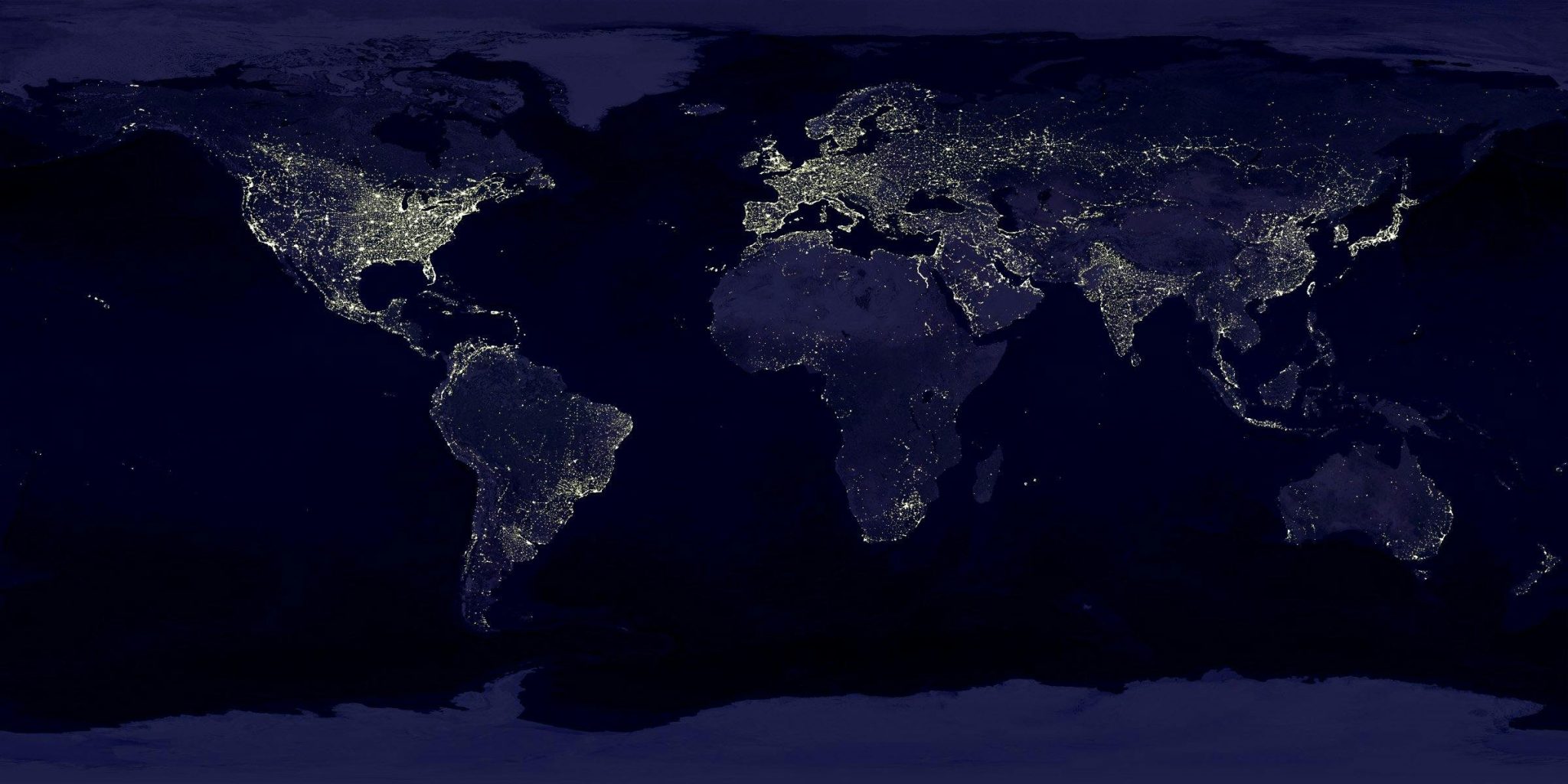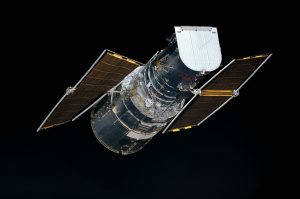
Chi Thanh Nguyen
Guest Contributor
Laws in space, Climate change, environmental harm, outer space, Outer Space Treaty, pollution, Space, space law, space mining
The Expanse or Star Trek, Interstellar or Star Wars: is the future of humans in space written in TV shows and movies like these?¬Ý Or does something else await us altogether?
Watching them, one is captivated by the prospect of humans living and working in different corners of our vast universe.¬Ý They conceptualise the socio-political construction of a future where our world may physically extend beyond Earth and even beyond our Solar System. ¬ÝThey certainly provoke some thoughts and questions that could shape the development of our very first space colonies, considering the state of space exploration today.
The Legal Regime
Outer space is currently governed by a legal regime that exists in spirit rather than in practice. ¬ÝIn other words, there is no blackletter law when it comes to governing outer space activities, and essentially no rules with respect to mass scale commercialisation.
¬ÝThe 1967 Principles Treaty of Outer Space, sets out broad principles‚Äîpeaceful use, non-ownership, States‚Äô responsibility for national space actors, and shared benefits, among others‚Äîbut remains untested in the real world. ¬ÝThe only instance in which the space law regime could have been applied was the Kosmos 954 incident, when the Liability Convention was the authority that Canada relied upon in claiming damages against the Soviet Union. ¬ÝHowever, the parties chose to settle via diplomatic channels.
The space law regime was created during the first Space Race back when two global powers, the United States and the Soviet Union, were the only ones with space capabilities. ¬ÝAs national space agencies have taken on a steering role to facilitate space commercialisation, the question remains: can this legal regime withstand the pressures of industry amidst geopolitical tensions?
Space is no longer just about exploration. It is also about control, resources, and power.
Support our work!
We can only do our work thanks to the support of brave, passionate people like you!
Your donation will help us to keep fighting for human rights and access to justice for everyone, everywhere.
Liability in the Final Frontier
One of the biggest legal uncertainties in space is liability. ¬ÝIf a commercial spacecraft crashes into a satellite or a mining operation on the Moon, causing unintended damage, who is responsible? ¬ÝThe space law regime places liability on States, making governments accountable for the actions of the private companies operating under their jurisdiction. ¬Ý
With American companies like SpaceX, Blue Origin, and Rocket Lab, and China‚Äôs growing private sector pushing further into space, this arrangement feels increasingly outdated. ¬ÝMany of these companies are redefining the conventional relationship between States and national actors in space activities and taking on unprecedented risks.¬Ý We might be reaching the point when space launches by private companies become an everyday occurrence. ¬Ý
Further, there is the possibility of corporations taking advantage of the less stringent national laws in authorizing outer space activities, or even no such law exists at all. ¬ÝWhat if a space company launches in international waters where no jurisdiction dictates national law to apply? ¬ÝThis leaves the question: should individual corporations bear direct liability? ¬ÝAnd if a dispute arises, what court or cosmic arbitrator would have jurisdiction beyond Earth‚Äôs borders? ¬ÝIt is interesting to see what would become of the ahead-of-its-time Optional Rules for Arbitration of Disputes Relating to Outer Space Activities¬Ý adopted by the Permanent Court of Arbitration (PCA) adopted in 2011.
The Battle for Resources
Space is no longer just about exploration. ¬ÝIt is also about control, resources, and power. ¬ÝThe emergence of national space forces, particularly the U.S. Space Force and China‚Äôs increasing ambitions, points to a growing militarisation of the cosmos. ¬ÝMore significantly, the race for extraterrestrial resources is intensifying. ¬ÝWith asteroids containing precious metals like 16 Psyche and the Moon‚Äôs vast potential for helium-3 extraction, companies are already jockeying for position in the Solar System Gold Rush.
The lack of a distributive mechanism means space pirates‚Äîcorporate or otherwise‚Äîcould be fighting over celestial treasures in the upcoming decades. ¬ÝIt took the United Nations years of historical lessons to adopt the United Nations Convention on the Law of the Sea (UNCLOS) upon an already well-established foundation of international maritime law. ¬ÝGiven that it is infinitely more difficult to travel into deep space than deep waters, and mindful of the fact that the mechanism for deep see mining is not yet in place, what will it take for lawmakers to develop similar mechanisms for outer space?¬Ý¬Ý

Are We Ready to Live in Outer Space?
Living in zero gravity for extended periods leads to muscle atrophy, bone loss, and vision problems. ¬ÝNow, imagine the harsh environments of other planets‚Äîextreme radiation, a lack of breathable air, toxic soils, etc. ¬ÝDo we possess the genetic and physiological adaptability to truly become a multi-planet species like one envisioned? ¬Ý
Antarctica, the harshest environment on Earth, has seen researchers suffer mental health declines in remote bases. ¬ÝYet, outer space is even more unforgiving. ¬ÝThis calls into question whether we are forever bound to be Earth‚Äôs creatures, unable to reach realms other than the ones we are currently confined to?
Answering that question begets another one. ¬ÝAre we to be trusted in space en masse with the current stage of technological development? ¬ÝOne mistake in space can be catastrophic. ¬ÝA single miscalculation in orbit, a failure of a life support system, or exposure to an alien pathogen could mean disaster. ¬ÝThe risks are not just personal‚Äîthey are existential.
Should we be entrusted with another world when we have yet to be responsible stewards of our own?
Finding A New Home Among the Stars As Humankind Leaves Desolation in Its Wake?
At the end of the film Interstellar, Cooper heeds his daughter‚Äôs words to set out again to find Brand ‚Äî his previous companion, who is then amongst the stars and possibly in a new home for Humankind. ¬ÝReturning to the real world, one wonders when humanity‚Äôs drive for space exploration might shift from a desire to a need, if it hasn‚Äôt already.
Fiction aside, there is an uncomfortable truth in our rush towards other planets: are we merely seeking a fresh start after making a mess of our own planet? Cosmos fixation and the spatial fix offers ‚Äúa way out‚Äù to our world‚Äôs growing, complex problems as climate change, pollution, resource depletion, and continuously emerging human challenges have left Earth in a fragile state. ¬ÝShould we be entrusted with another world when we have yet to be responsible stewards of our own?
¬ÝWhen the President of Liberia addressed the United Nations at the inception of the first space race, he warned against entrusting humankind with the universe without having a sufficient understanding of it. ¬ÝDecades later, his sentiment lingers in the mind of this writer as humankind enters a new space race ‚Äìthe most ambitious and daring one yet.
Just Access e.V. is a non-party political organisation, whose mission is to support human rights and access to justice worldwide. ¬ÝThe views and opinions expressed in this piece and those of the author, and do not necessarily represent those of Just Access e.V.¬Ý
Subscribe to the Just Access newsletter
Don’t miss any of our blog posts, or any of our other great content!
Stay up to date with our work by subscribing to the Just Access Newsletter (six mailings per year).









